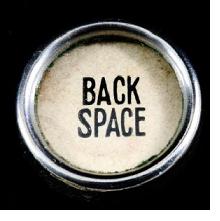 How can you improve your writing in seconds? It’s simple once you make a few habits second nature. I know plenty of writers who agonize over every line, but it is very rare that they manage to improve without taking at least a couple of these suggestions to heart.
How can you improve your writing in seconds? It’s simple once you make a few habits second nature. I know plenty of writers who agonize over every line, but it is very rare that they manage to improve without taking at least a couple of these suggestions to heart.
The trick is to make these concepts a part of ALL your writing. That includes shopping lists, e-mail, even the way you speak. If that sounds extreme to you, remember that good writers are the ones who took great pains over their work–the writer’s equivalent of practicing the free throw, the slap shot, whatever. Writers don’t practice writing, instead they do it in public–your best and worst work goes to the editor and you cross your fingers. When it’s your worst work, you don’t get the gig. Hell, sometimes when it’s your best work you don’t get the gig either.
It pays to be proactive and submit your very best. Here are five ways to do that:
5. READ the line. Here’s a great example. Author Ron Fry wrote a book called Improve Your Writing. A lesser writer would have titled it “Improving Your Writing“. Look at that line and tell yourself why it doesn’t work. Can’t tell? Try saying the title out loud. Now you get it. READ your material.
4. Avoid your personal set of cliches. Phrases like “Take a gander,” “Have a look,” “You won’t believe.” and my own personal example, “In the world of…” This tip goes back to the previous one. READ your work and scour it for cliches and dump them. Be cruel.
3. Don’t fall in love with your own prose. I’ve known a writer or two so in love with their own work that they get very annoyed when an editor changes something. Folks, there are people out there who know writing better than you and they have something to teach you when they revise. Don’t assume you are the master of your craft. Stephen King doesn’t, and you’re no Stephen King. No matter WHO you are.
2. Don’t try to make a final draft when writing your first draft. By this I mean don’t try to write it perfectly the first time. Writers who put down a line or two then go back to try and polish it right then and there miss the whole point of a first draft. The first draft is a way to collect your best ideas in one place. The second draft is to make those ideas clearer and read better. The first draft should NOT be polished as you go. Just blurt it out there and revise once your thoughts are done.
1. When freelance writing, don’t assume that your articles or blogs are the only place you should worry about your words. That e-mail to your editor should be given the same attention as everything else you write. COMPOSE those letters and never send a first draft of ANYTHING, even a query letter. This advice also goes back to the first rule in our list. READ your work and make good writing second nature even in those goofy one-line messages you post on Twitter.
